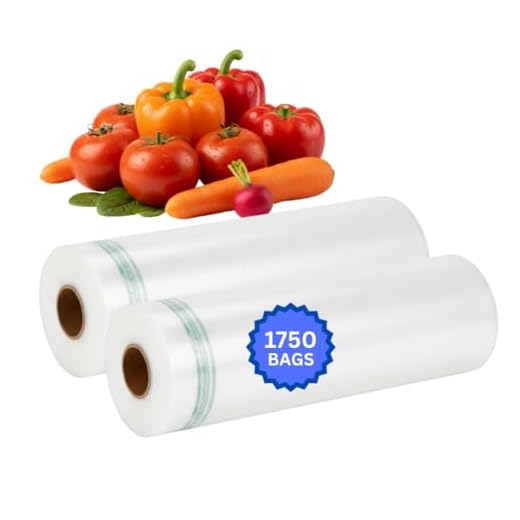



Bringing intact, whole fruits through security checkpoints is generally permissible, but regulations vary significantly by country and airline. For instance, many regions allow apples, bananas, and oranges, while others may restrict certain types, particularly exotic or non-native varieties.
Prior to packing any edible items, check the specific guidelines of the departure airport and your destination. A quick review of customs regulations can save potential hassles. Be vigilant about any restrictions, especially when traveling internationally, where various nations enforce strict agricultural import controls.
When carrying produce, ensure it is stored securely to avoid damage or spoilage. Using airtight containers or resealable bags can help maintain freshness and prevent accidents. Stay informed about any limits on quantities, as excessive amounts may draw scrutiny from security personnel.
Guidelines for Carrying Produce
Travelers should verify the regulations of their departure and destination countries regarding the transport of produce. Many nations have strict import controls to prevent pests and diseases.
In the United States, for example, any unprocessed agricultural items may be subject to scrutiny at checkpoints. Commonly, items such as bananas, apples, and grapes are scrutinized. Some varieties can be permitted if originating from specific regions.
When traveling within the European Union, members generally allow certain types of produce, but a few items may face restrictions based on health and safety regulations. Always check the latest guidelines on customs websites before packing.
Packaging can also play a role; items should be clean and free of soil. It’s advisable to carry them in transparent bags to facilitate inspections.
Transporting items may be less problematic if they are packaged commercially. Homegrown produce is more likely to be flagged by authorities.
Consider alternative options, such as purchasing items at the destination. This can prevent potential issues at customs and provide a better selection suited to local tastes.
Regulations for Carrying Fruits on Domestic Flights
Domestic travel usually permits carrying specific types of produce, but each airline has distinct policies. Certain carriers may limit or prohibit items like oranges or apples due to agricultural regulations. It’s advisable to check the airline’s guidelines in advance to ensure compliance.
When packing these items, consider the durability of the selected produce. Hardier options are less likely to become damaged during transit. Use a durable mode of transport for your belongings, such asbest day packs with waist strap, to keep your snacks secure.
State regulations may dictate additional rules, which could vary by region. In some cases, items might be subject to inspection, especially if they are coming from or going to areas affected by specific pests or diseases. Familiarizing yourself with local restrictions can save time and trouble.
Travelers must also be aware that some destinations impose bans on bringing certain types of agriculture. Thus, it’s recommended to review regulations at your final destination before packing any consumables. Before taking off, ensure you’re informed to avoid penalties.
In conclusion, understanding the specific carrier and destination rules regarding agriculture can enhance your travel experience and avoid mishaps. Consider looking into more resources, such as this article on how a democracy can have both representative and direct characteristics, for broader insights on regulations impacting your journey.
International Travel Restrictions on Fresh Produce
Transporting perishable agricultural products between countries typically faces numerous regulations. Each nation implements specific guidelines to protect local ecosystems and agriculture.
Check the customs regulations of your destination country before packing. Common restrictions include:
- Some nations prohibit the arrival of certain species to prevent the introduction of pests and diseases.
- Import permits might be required for specific types, even if not outright banned.
- Declare all agricultural items upon entry to avoid significant fines or confiscation.
Many regions offer limited exceptions, such as items sourced from commercial suppliers with appropriate documentation. Familiarize yourself with:
- Regional agricultural guidelines available on government websites.
- Specific items that receive exemptions, such as dried or canned varieties.
- Prohibited categories that rank differently based on the risk to local agriculture.
Countries like Australia and New Zealand maintain strict biosecurity measures, often disallowing nearly all forms of produce, while others might be more lenient with certain items. Always verify before your trip to ensure compliance and avoid penalties.
Best Practices for Packing Fruits in Carry-On Bags
Choose sturdy options like apples or bananas that are less prone to damage during transit. Wrapping them in clothing can provide additional cushioning, minimizing the risk of bruising.
Keep moisture levels low by utilizing breathable mesh bags or perforated containers. This helps prevent spoilage while maintaining freshness.
Position delicate items, such as berries or grapes, towards the top of your carry-on, ensuring they are not crushed by heavier belongings. Use padded pouches specifically designed for fragile items whenever possible.
Research local regulations for your destination to avoid confiscation at security checkpoints. Prioritize packing items that meet those requirements.
For easy access during travel, store smaller portions in resealable bags. This allows for convenient snacking without fully unpacking your bag. Refer to guides for best luggage clothes only practices to optimize packing.
Alternatives to Fresh Produce in Carry-On Bags

Dried options provide an excellent substitute for keeping snacking options during your travels. Choices like dried mangoes, apricots, or apples retain natural sweetness and nutrients while being lightweight and less fragile.
Snack Bars and Trail Mix
Consider energy bars or trail mix as convenient and compact choices. These products usually combine nuts, seeds, and dried fruits, delivering energy without the hassle of perishability.
Canned or Jarred Goods
Sealed containers of fruits in syrup or juice can be permissible, as long as they meet liquid restrictions. Ensure that the total volume adheres to regulations, typically under 100 ml for liquids.
Opt for nut butters in single-serving pouches paired with crackers. Such items are nutritious and easy to carry, providing a satisfying alternative while adhering to security protocols.
Vegetable chips serve as another appealing substitute. They offer a crunchy texture and unique flavors without the weight and spoilage concerns associated with fresh varieties.







